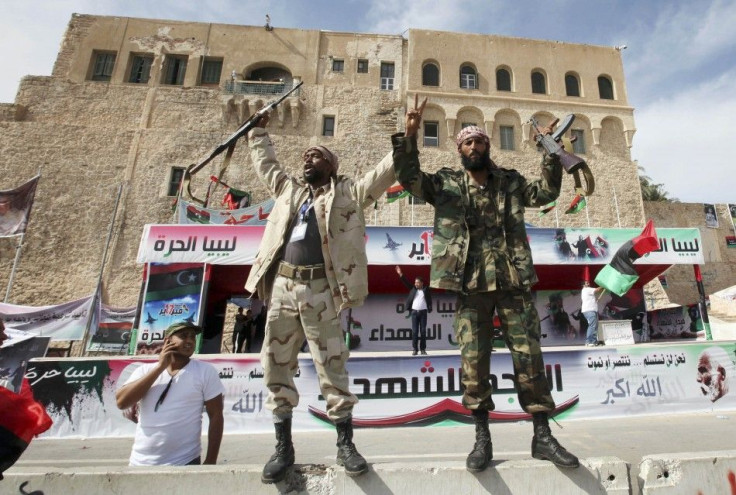What Does Moammar Gadhafi's Death Mean for the Oil Market?
ANALYSIS

The death of Moammar Gadhafi has definitely clarified one piece of the jigsaw puzzle that is the global oil market: There is now one fewer issue to hinder production security in a host of oil hot spots. Beyond that, however, analysts believe his death is not likely to impact the price of crude oil.
Oil production in Iraq, with one of the biggest oil reserves in the world, has been compromised to a great extent by insurgency for several years.
In Nigeria, rebel activity has been a constant cause of concern in the global oil market: The Movement for the Emancipation of the Niger Delta (MEND) has been able to deal blow after blow to the country's oil production capacity by forcing shutdowns and sabotaging pipelines.
And, in Yemen, tribal attacks supported by al-Qaida militants have crippled the oil and-natural gas infrastructure substantially, and a complete cut in exports is looming.
So the latest developments in Libya could help calm oil-market nerves, but Gadhafi's death may not have any direct impact. After all, the Libyan National Transition Council authorities have said in the recent past that the country's oil exports will be restored to prewar levels within about 15 months. This projection still holds good, so the death of the country's ex-ruler is not likely to make an immediate impact.
“The news of Gaddafi’s death will certainly send a collective signal that the next phase in Libya’s national recovery can now begin. But in terms of physical oil production there is not much that can be done in the short term that is not already being done,” Daniel Yergin, chairman of IHS Cambridge Energy Research Associates, wrote in a statment.
“The writing had been on the wall for some time in this conflict, and Libyan oil production had already started to recover from the near total disruption that occurred at the height of the civil war,” Yergin noted.
Before the recent revolution, Libya produced about 1.6 million barrels of oil per day (bpd), 85 percent of which was exported to Europe.
The Organization of Petroleum Exporting Countries (OPEC) has estimated that Libyan exports would return to preconflict levels next year.
Some analysts think Gadhafi's death could help quicken the pace of restoration of oil-export volumes because it has largely pre-empted any need for action by elements still loyal to the deceased ruler. To many, the death of Qaddafi eases the specter of a fully fledged insurgency that could disrupt oil production for years to come, Syed Rashid Husain wrote in Arab News.
According to Libya's official oil establishment, the death of Gadhafi and the cessation of the NATO bombing campaign will help restore security and improve the logistical situation. This will improve transport to fields and we can now concentrate on rebuilding the sector, Nouri Berouin, chairman of the National Oil Company (NOC), told Reuters.
Regardless of the impact of Gadhafi's death on the oil market, the late strongman made an indelible footprint on the global oil market, according to Yergin. “The rise and fall Muammar Qaddafi marks two pivotal points in the history of oil,” said Yergin, author of The Quest: Energy, Security and the Remaking of the Modern World.
“After taking over power in Libya in 1969, a 29-year-old Qaddafi initiated radical moves -- a shift in power from international companies to oil exporting countries -- that set the stage to the oil crises of the 1970s that thrust oil to the center of world politics. Qaddafi’s death comes at another signal moment when the world is moving into a new oil era marked by the peaking of oil demand in the West and the shift toward the fast growth in oil use in emerging markets.”
© Copyright IBTimes 2024. All rights reserved.





















